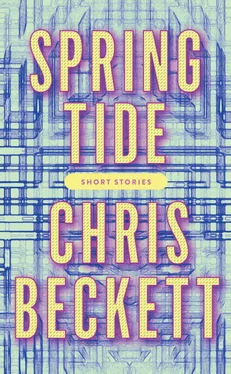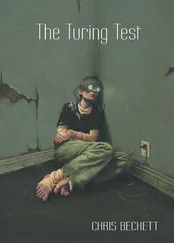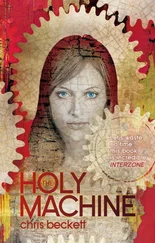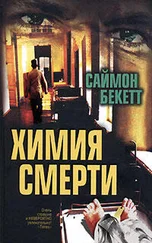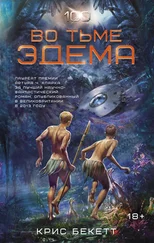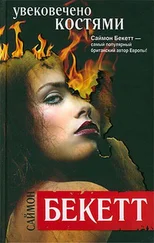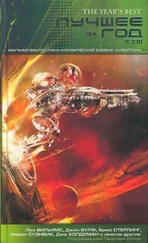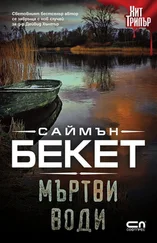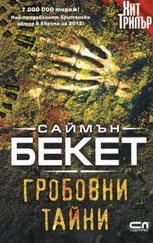‘These entities only exist at all because of suffering.’ That, very roughly speaking, was the gist of the Clockmaker’s argument. ‘They only continue to exist because their mechanisms drive them to constantly struggle against annihilation. They are fragile teetering towers. If they are not just to crumble and melt back into the world, everything that threatens their precarious balance must be the cause of fear and pain to them, while everything likely to maintain and perpetuate it must be the source of craving, the cause of constant striving and desperate struggle. There can never be rest for them, for as soon as they rest they will topple, and disintegrate, and cease to exist.’
And Clockmaker laid out more examples. There was a man trapped inside a sinking ship, trying to suck air from the dwindling pocket that still remained, a woman surrounded by a forest fire, vainly trying to shield her children from the blaze with her own blistering flesh. All that was really going to happen to the woman and her children was that their bodies would oxidise, and then quickly return to the peaceful simplicity of the untarnished Clock. All that would happen to the drowning man was that his own personal clock would stop. Yet still they struggled desperately, even when all hope had gone of retaining their separateness.
‘Don’t you pity them, Eli?’ the Clockmaker asked. ‘Don’t you pity these strange accidental beings, which are neither one thing nor another? They are like us in a way – you’re quite right about that – they’re like angels, and that is indeed a strange thing. But can’t you see they’re angels made of mud, who must constantly worry about rain, and fret about heat, if they are to remain in existence at all? Surely it would be better to take away from them this cruel desperate battle that they are compelled to fight, and which in the end they’ll always lose? Surely it must be better to let them crumble quietly back down into the simple, untroubled matter from which they come?’
‘But these exist also!’ protested Eli, proceeding to lay out millions of examples, just as the Clockmaker had done, but this time of happiness, pleasure, love, beauty and delight, all of which, like suffering, had hitherto been quite unknown.
If pain was real, then so were they: that was Eli’s argument. But the Clockmaker just laughed.
‘Alright, Eli, my stubborn son, I will give you a choice. You can destroy these little beings and come back to obedience, or you can let them survive. But if you decide to let them carry on, you yourself will have to live out, one by one, every single life that has ever existed on this stone, and exists now, and will exist in the future. Do you understand me? You must sit behind every single pair of eyes from the moment those eyes open to the moment they finally close. And then straight onto the next pair, and the next, and the next, billions and billions of times over, from now until the moment that the last eyes close.’
As the Clockmaker spoke, his own fiery eyes were drilling deep into Eli’s mind. ‘So come on now, Eli. Make your choice. Let’s see if you really mean what you say about their lives being worth living.’
Eli looked up fearfully into the Clockmaker’s terrifying gaze and saw the pure and absolute justice of what he’d said. If it was indeed true, as Eli had claimed, that these beings’ existence was worth more than nothing, then how could he object to living behind their eyes?
As he tried to decide whether or not he’d really meant what he said, he turned his attention back to that little stone of his and considered once more the tiny beings who lived there. There was no doubt about it: the Clockmaker was right about suffering. These odd, accidental little beings did indeed experience terrible suffering, and it was indeed integral to their nature, essential to their continued existence. Could he really bring himself to live through it, again and again and again, until the last spark of life had finally flickered out?
Eli thought about it for a short while – the stone went round its star barely a hundred times – and then he made a decision.
‘I submit to your judgement, Clockmaker. I’ll let them live and I’ll pay the price for it.’
The Clockmaker nodded, grudgingly impressed, and then, all at once, he dissolved Eli’s angelic body, plucked out the widthless point that contained his spirit, and readied himself to fling it down to the surface of that small and insignificant stone.
‘Very well then, Eli,’ he boomed. ‘You’ve made your choice. Come and look for me at the end of time.’
So Eli lived, one after the other, the lives of every sentient being born on the planet Earth. He was every human being and every animal. He was every tyrant and every slave. He was all the women who died in childbirth, and all who lived and gave birth. He was every torturer and everyone who was ever tortured. He was every beggar and every passer-by, every cat and every mouse, every hawk and every sparrow. He looked out at the world through the multiple eyes of all the spiders that ever were, the compound eyes of every ant and fly, the lidless eyes of every fish. He experienced the abyssal depths through the senses of each blind creature that wriggled or crawled there. He was every single living thing, however humble, that had some sense of its own existence, however slight that might be. And everything that any one of them experienced, he experienced himself, from the sweetest pleasure to the most excruciating pain.
After each life came to an end, he woke to himself again for a moment, saw the life he’d just lived laid out behind him, and saw the ways in which he might have lived it better. But then the moment of clarity was over, and he was back at the beginning of another life, his entire existence confined once more to a tiny memory-less bundle of flesh which must learn everything all over again. Occasionally, in certain human bodies, some vague sense of his situation would come to him, and he’d try to communicate it to his fellow beings. (And they, not remembering who they were, would almost always dismiss it, often angrily, and sometimes with murderous rage.) Most of the time, though, he had no inkling at all.
And so he went on. Even when all the humans had died out, he wasn’t even halfway to the end of it. Millions of years passed by when he went through cockroaches, one after another, each in its dim and solitary world, with craving, pain and pleasure switching on and off in its brain like coloured lights, and no thoughts at all.
At last, though, at the end of time, when the Clock finally stopped moving, and all its components had become cold and dark and inert, Eli returned to the place where the Clock was made. He was himself again, he was Eli the archangel, but he was immensely old. In fact, he was immeasurably older than the Clock itself, for he’d had to live out every second over and over again, through every being that had been present in it.
As he came to the place where the arena had stood, he remembered the life he’d led before his fall to Earth. He remembered what it was to be an archangel. He remembered the great fiery eyes of the Clockmaker. He remembered the sense of expectation in the darkness beyond the arena, the sighing that rose upward and outwards through that cavernous space that contained the unseen host.
But there was no sighing now, no expectation. No one spoke or moved. There wasn’t even a lonely wind such as might blow through a desolate place on Earth, making things rattle and clank.
‘Clockmaker!’ he called out. ‘It’s me, Eli. I did what you asked me to do, and I’ve returned!’
But there was no one there. There was nothing in existence but Eli himself.
‘What do I love best in all the world?’ Mike Staines answers himself without the slightest hesitation. ‘This key fob! I’ve had it more than fifteen years! It’s solid steel. Go on. Hold it. It’s satisfying, isn’t it? You can really feel the weight of it in your hand.’
Читать дальше
